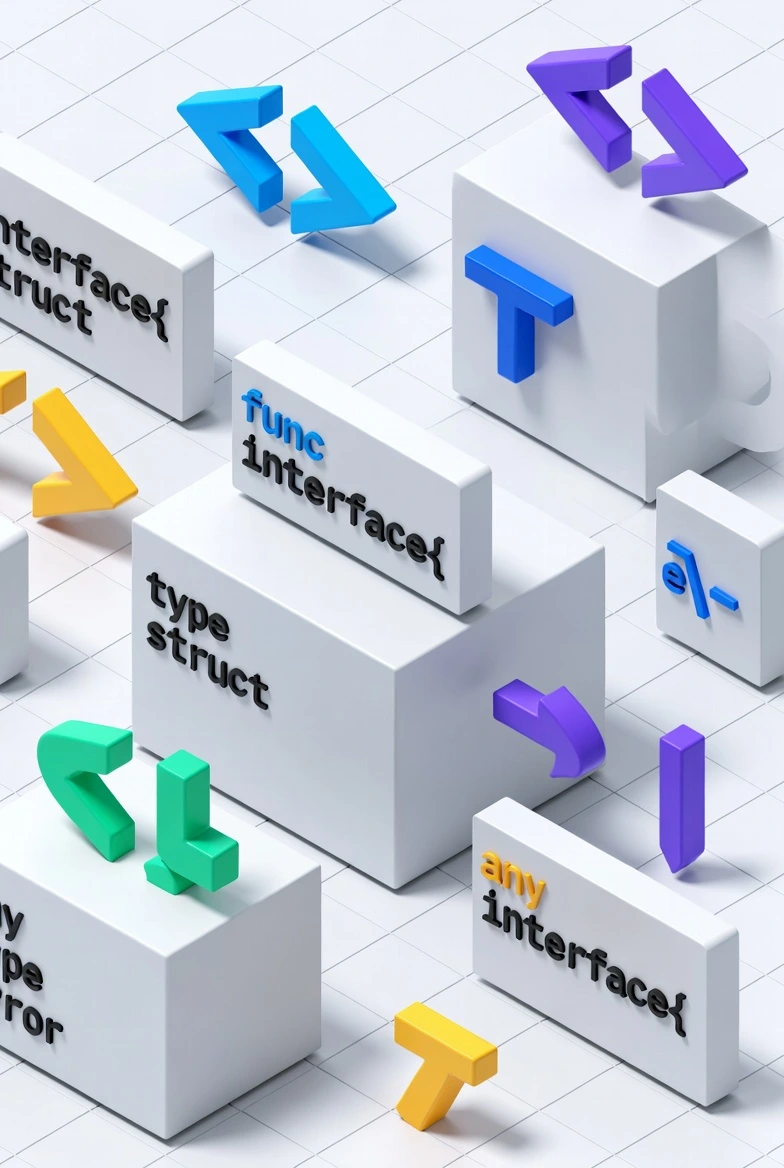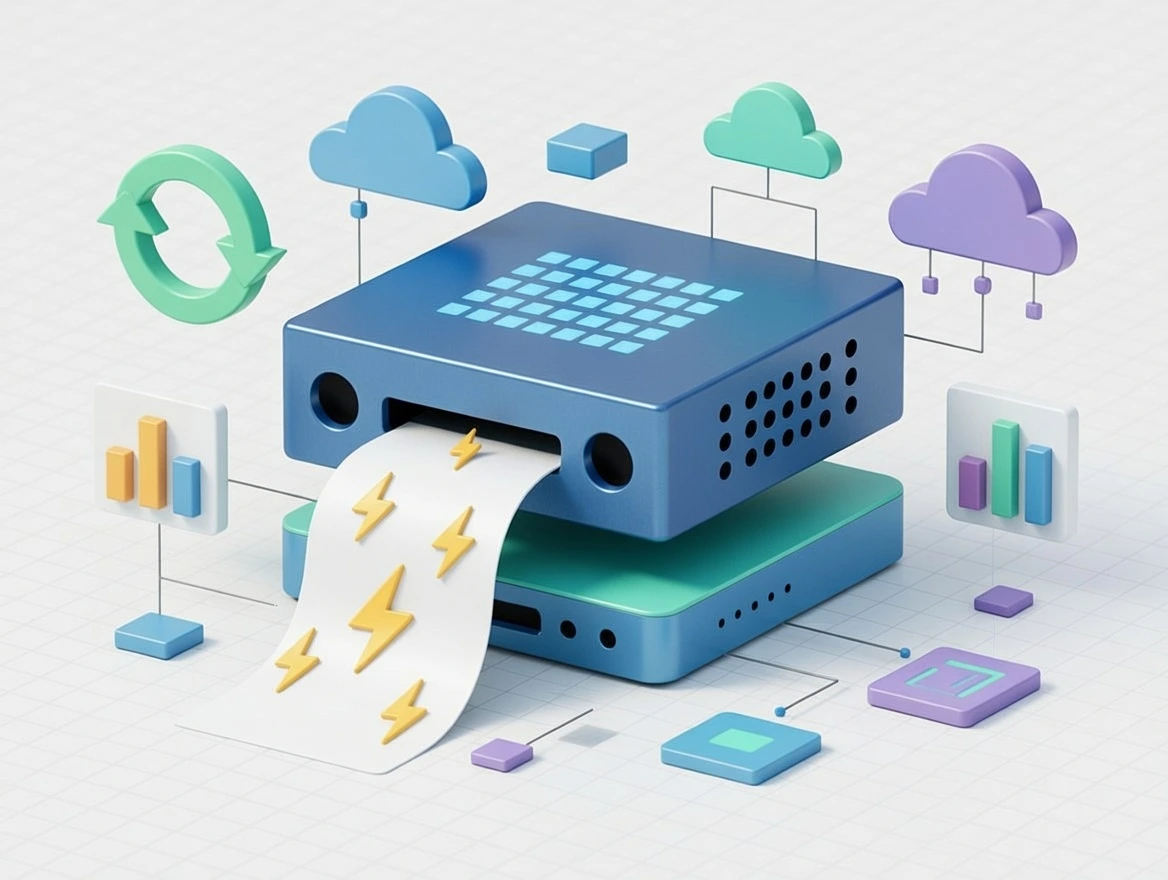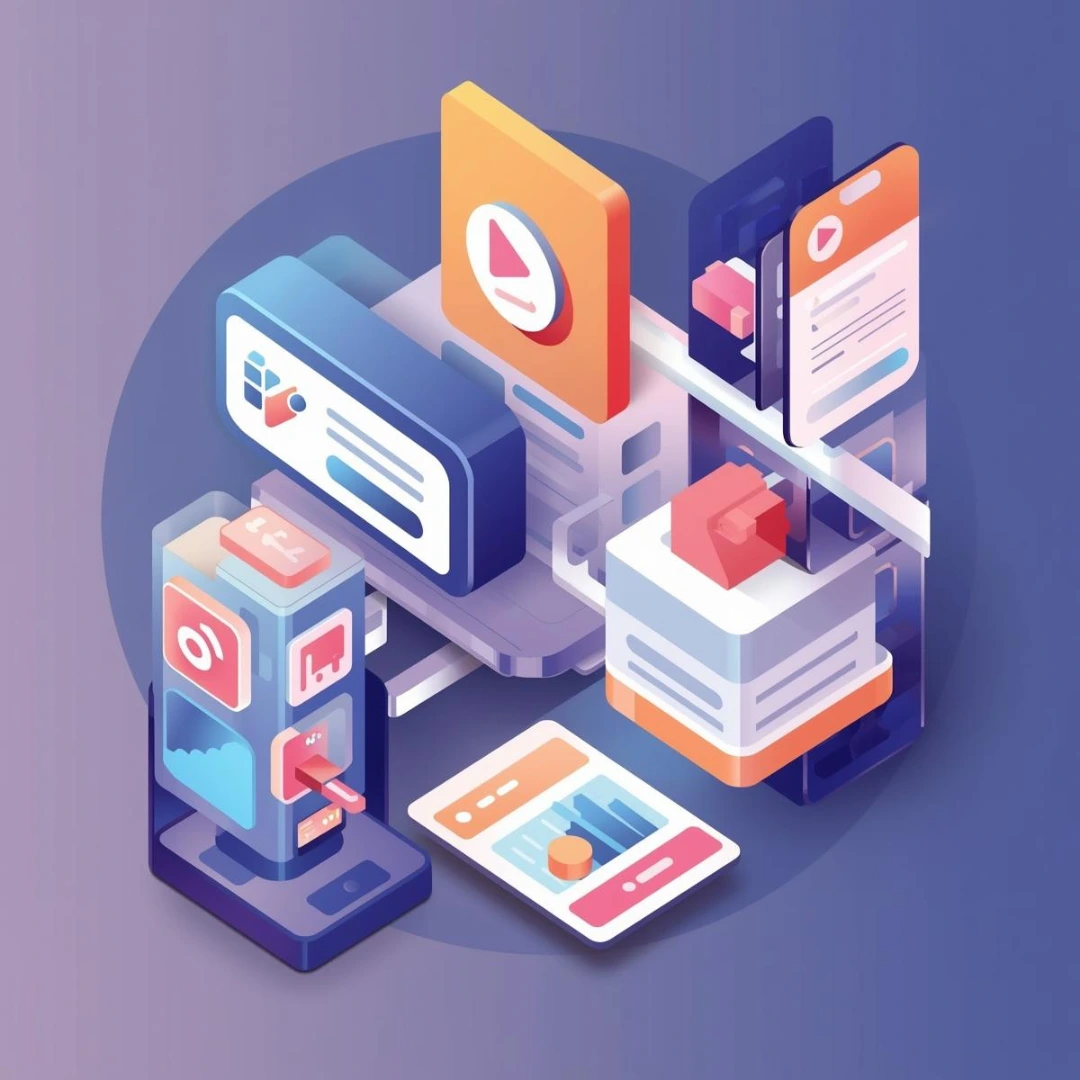
Victoria Olajide
Product & Content Marketing at Devcenter.
Article by Victoria Olajide, Product Marketing Manager, Devcenter.
The race for elite tech talent has never been more intense. In 2025, traditional recruiting methods are slow, costly, and inefficient. Job boards are saturated, and the best candidates are off the market in days, not weeks. If you're a hiring manager or a founder, you know the pain: endless resume screening, unqualified candidates, and a hiring cycle that drags on for months.
But what if you could bypass the noise? What if you could connect directly with a pre-vetted, global pool of top tech professionals ready to work?
The right tech hiring platform is the answer. These platforms leverage AI, rigorous vetting processes, and global reach to connect you with the talent you need, fast. This guide breaks down the 7 best tech hiring platforms of 2025 to help you cut your hiring time in half and secure the developers, engineers, and tech leaders who will drive your company's growth.
1. Gigson: The Gold Standard for Tech Recruitment
Best for: Companies of all sizes that need to hire top-tier, vetted tech talent with maximum speed and efficiency.
When it comes to a comprehensive, intelligent, and results-driven hiring solution, Gigson stands in a class of its own. It's more than just a platform; it's an end-to-end hiring partner designed to eliminate the friction of tech recruitment. Gigson combines a massive global network with powerful AI to deliver precisely matched candidates in record time.
Why Gigson is #1:
- AI-Powered Candidate-to-Project Matching: Gigson’s proprietary AI goes beyond keywords. It analyzes the nuanced requirements of your project, your company culture, and the technical challenges involved, then matches you with candidates who have a proven track record of success in similar roles. This cuts down screening time from weeks to hours.
- Real-time Vetted Skill Verification: Say goodbye to technical interviews that go nowhere. Every candidate on Gigson undergoes a multi-stage vetting process that includes rigorous coding challenges, system design interviews, and peer-reviewed project contributions. You only speak to candidates who are verified to be at the top of their game.
- Predictive Analytics for Hiring Success: Gigson provides data-driven insights to help you make smarter hiring decisions. Understand salary benchmarks for different regions, identify potential talent interest, and get predictions on candidate longevity, helping you not just hire, but retain top talent.
- Unmatched Speed: The average time to present a shortlist of qualified candidates on Gigson is just 3 seconds. This is how you cut your hiring time by 50% or more.
For companies that cannot afford to compromise on talent quality or speed, Gigson is the definitive choice in 2025.
2. Toptal
Best for: Businesses looking for elite freelance tech talent for critical projects.
Toptal is famous for its claim of accepting only the top 3% of talent that applies. This rigorous screening process makes it a go-to for companies needing highly skilled freelance developers, project managers, and finance experts. While not a permanent placement platform by design, it's perfect for project-based work and augmenting your existing team.
Key Features:
- Extremely rigorous screening process.
- Fast matching (typically within 48 hours).
- A no-risk trial period with your new hire.
3. Andela
Best for: Companies looking to build brilliant, distributed engineering teams with talent from emerging global markets.
Andela focuses on connecting companies with top tech talent from across the globe, with a strong presence in Africa and Latin America. They are experts in building long-term, integrated remote teams. Andela handles the entire process, from sourcing and vetting to payroll and compliance, making it easy to scale your team globally.
Key Features:
- Access to a global talent pool.
- Focus on long-term, embedded team members.
- Handles all HR and payroll logistics for you.
4. Codility
Best for: Engineering teams that want to create a fair and effective technical screening process.
Codility is less of a hiring marketplace and more of a technical assessment platform. It allows you to test candidates' coding skills in a realistic development environment. By integrating Codility into your hiring process, you can objectively measure a candidate's abilities and ensure you're only interviewing the most qualified individuals.
Key Features:
- Library of real-world coding challenges.
- Plagiarism detection to ensure fair assessments.
- Integrates with major Applicant Tracking Systems (ATS) like Greenhouse and Workday.
5. Greenhouse
Best for: Companies that need a powerful, centralized Applicant Tracking System (ATS) to structure their entire hiring process.
Greenhouse is one of the most popular ATS platforms for a reason. It helps you create a structured, repeatable, and fair hiring process. From posting a job to multiple boards to scheduling interviews and collecting team feedback, Greenhouse organizes everything. It’s the backbone of a modern recruiting operation.
Key Features:
- Structured hiring workflows and interview kits.
- Powerful reporting and analytics.
- A massive ecosystem of integrations with other HR tools.
6. Dice
Best for: Recruiters and companies looking for a massive database of active and passive tech candidates in the U.S.
Dice has been a staple in the tech recruitment world for decades. It's a massive job board and resume database focused exclusively on technology professionals. If you have a strong internal recruiting team, Dice's database can be a goldmine for sourcing candidates you won't find elsewhere.
Key Features:
- Over 6 million tech professional profiles in the U.S.
- Powerful sourcing tools and filters.
- Salary prediction and market data tools.
7. Breezy HR
Best for: Small to medium-sized businesses looking for an easy-to-use, affordable, and visually intuitive hiring platform.
Breezy HR makes hiring simple and collaborative. Its user-friendly, drag-and-drop pipeline helps you and your team track candidates from application to offer. It automates many of the tedious parts of recruiting, like scheduling interviews and sending follow-up emails, so you can focus on finding the right person.
Key Features:
- Visual, Kanban-style candidate pipelines.
- Automated interview scheduling and communication.
- Affordable pricing for smaller businesses.
How to Choose the Right Platform for You
Feeling overwhelmed? Follow this simple, step-by-step guide to make the right choice.
- Assess Your Core Hiring Need: Are you looking for a full-time employee, a short-term freelancer, or to build an entire remote team? Your answer will immediately narrow the field.
- Define Your Budget and Resources: Determine what you can spend. Platforms range from simple monthly subscriptions to percentage-based fees on a new hire's salary. Also, consider who will be using the platform—do you have a dedicated HR team or will engineering managers be running the show?
- Evaluate Key Features: Based on your needs, prioritize features. Do you need AI matching for speed (Gigson)? A massive resume database for sourcing (Dice)? Or a structured ATS to organize your process (Greenhouse)?
Request Demos and Start Trials: Never commit based on a website alone. Schedule demos with your top 2-3 choices. Run a real job opening through a trial if possible. This is the best way to see if a platform will truly work for your team.
Finding the right talent is very important, and as the demand for skilled developers and IT professionals grows, companies are turning to tech hiring platforms to streamline their recruitment process. However, selecting the right platform can be challenging with several options available.
Here's a simple flowchart to guide you through each step:

1. Identify Your Hiring Needs
2. Evaluate Platform Features
3. Recruit Related Specialists
4. Select the Ones That Match
5. Onboard
Creating a clear and streamlined hiring process allows you to efficiently find and onboard the right talent. Here’s a comprehensive guide to help you navigate this process.
1. Identify Your Hiring Needs
- Assess Your Technical Requirements: Before searching for a hiring platform understand your specific technical needs. Are you looking for full-stack developers, front-end developers, or mobile app developers? Knowing the exact roles and skill sets you need will help you choose a platform that specializes in those areas.
- Determine the Volume of Hiring: Consider the scale of your hiring needs. Are you looking to hire a few key team members or build an entire development team? Some platforms are better suited for large-scale recruitment, while others focus on helping you find a few high-quality candidates.
- Geographic Preferences: Decide whether you need local talent or if you’re open to remote developers from around the globe. Some platforms have a strong local presence, while others specialize in remote or offshore talent.
2. Evaluate Platform Features
- Candidate Screening and Assessment: Look for platforms that offer screening and assessment tools. Features like coding tests, technical interviews, and skill assessments can help you ensure that candidates meet your technical requirements before you even speak to them.
- Quality of the Talent Pool: Investigate the quality of the platform’s talent pool. Do they have a diverse range of candidates with varying levels of experience and expertise? Platforms like Gigson, for example, are known for providing access to highly skilled developers across multiple tech stacks.
- User Interface and Experience: A user-friendly interface can make the hiring process easier. Evaluate the platform’s usability from both the employer and candidate perspectives. Some key factors include easy navigation, clear communication channels, and user-intuitive design.
3. Consider Cost and ROI
- Pricing Models: Different platforms have different pricing models, such as subscription-based, pay-per-hire, or commission-based. Assess your budget and choose a platform that offers the best value for your money.
- ROI Measurement: Consider how you will measure the return on investment (ROI) from using the platform. Track the hiring process, candidate success rates, and the overall impact on your business.
4. Platform Reputation and Support
- Reviews and Testimonials: Research the platform’s reputation by reading reviews and testimonials from other companies who have used their service. Platforms with consistently positive feedback are more likely to provide a reliable and effective service.
- Customer Support: Strong customer support can be helpful when you have issues or questions. Ensure the platform offers proper support, dedicated account managers, or detailed help resources.
5. Take Advantage of Platform-Specific Benefits
- Niche Expertise: Some platforms specialize in certain niches within the tech industry. For example, Gigson is renowned for its ability to connect startups with developers who have experience in several technologies and innovative projects. Leveraging such niche expertise can be advantageous.
- Community and Networking: Platforms that build a sense of community among their users can also offer benefits. Access to exclusive resources can enhance your hiring efforts.
Hire with Gigson
Selecting the right tech hiring platform is a strategic decision that can significantly impact your company’s success. By thoroughly understanding your hiring needs, evaluating platform features, considering costs and ROI, checking reputation and support, and taking advantage of platform-specific benefits, you can choose a platform that aligns with your business goals. Platforms like Gigson, with an extensive talent pool and focus on innovation, can provide the specialized support you need to build a top tech team.
Gigson supports your long-term growth and innovation strategies.
Frequently Asked Questions (FAQ)
- What is the average cost of a tech hiring platform? Costs vary widely. Job boards like Dice may have monthly subscriptions. Platforms like Toptal and Gigson Performance often charge a significant fee upon a successful hire, while platforms like Breezy HR and Gigson Recommend have tiered monthly pricing based on usage.
- How do these platforms vet candidates? The best platforms use a multi-layered approach. This includes automated coding tests (like Codility), live technical interviews with senior engineers, and thorough portfolio and reference checks. Gigson leads the pack with its comprehensive, real-time skill verification.
- Can I integrate these platforms with my existing ATS or HR software? Yes, most modern platforms are designed for integration. Platforms like Codility, Greenhouse, and Gigson have robust APIs and pre-built integrations to ensure they fit seamlessly into your existing tech stack.




